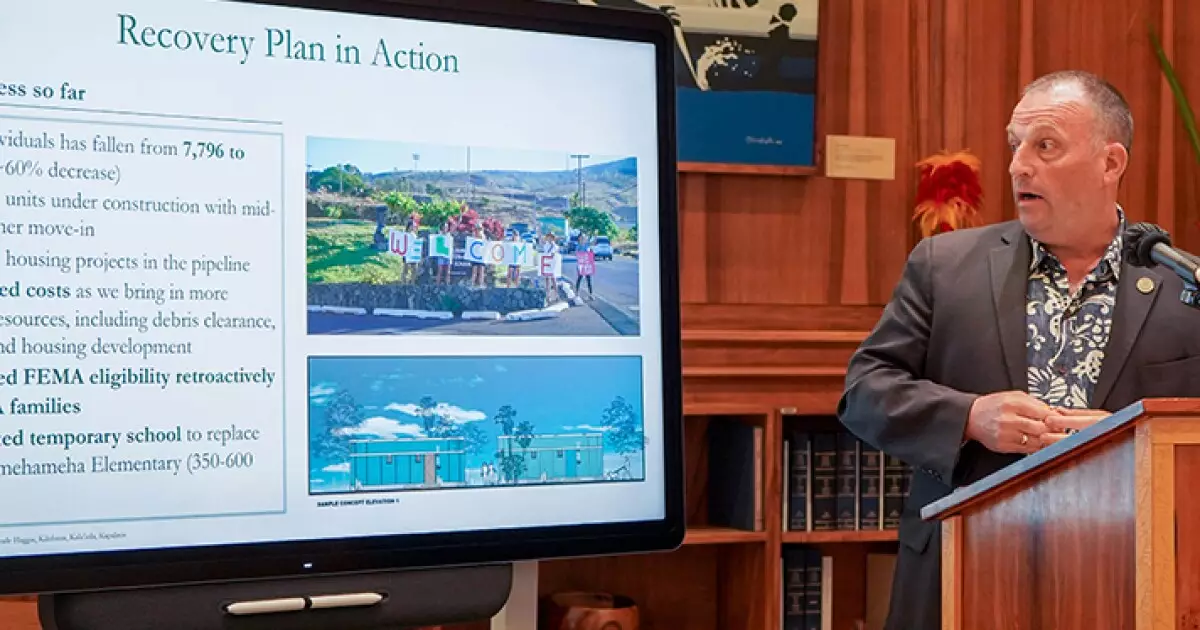Hawaii Governor Josh Green faced a significant setback when he failed to convince lawmakers to consider legislation that would have allowed struggling Hawaii Electric Co. (HECO) to issue bonds backed by a rate increase. Senate Bill 2922, introduced by Senate Commerce and Consumer Protection Chair Jarrett Keohokalole, aimed to enable HECO to issue up to $2.5 billion in low-interest bonds. However, the bill was deferred indefinitely by Keohokalole, effectively killing it for the current session. Green’s efforts to revive the bill ultimately failed, and the governor’s office confirmed the disappointing outcome.
HECO has been grappling with financial difficulties ever since a tragic wildfire ravaged the town of Lahaina on Maui, resulting in the loss of 101 lives. The utility faces numerous lawsuits, and its bond ratings plummeted to junk status shortly after the devastating blaze. The failure of the bond measure proposed in Senate Bill 2922 further complicates HECO’s financial situation, limiting its access to necessary funds for core operations and safety investments.
With the bond measure off the table for the time being, HECO plans to intensify efforts to persuade the Hawaii Public Utilities Commission to allow the utility to utilize money owed by customers and other parties as collateral for establishing lines of credit. HECO is seeking approval from commissioners to sell accounts receivable and secure a long-term credit line to replace its current short-term line. The inability to access capital markets or issue commercial paper due to its degraded bond ratings has hindered HECO’s financing options, impacting its ability to ensure public safety and reliable service.
Implications for the Energy Sector
The failure of Governor Green’s attempt to salvage HECO through legislative means highlights the challenges faced by the energy sector in Hawaii. The dependence on outdated infrastructure and the impact of natural disasters underscore the urgent need for comprehensive strategies to enhance energy resilience and sustainability. The inability of HECO to secure funding for essential operations underscores the vulnerability of utilities to financial instability in the face of unforeseen catastrophes.
As the Legislature adjourned without any resolution on the bill, Governor Green remains open to the possibility of a special session in the event of significant developments or urgent changes in the utility sector. Discussions and negotiations regarding the bill will continue, with the aim of reintroducing it when the next session begins in January 2025. The importance of addressing the financial challenges of HECO and ensuring the stability and reliability of the utility are paramount to securing Hawaii’s energy future.
The failure to pass legislation enabling HECO to issue bonds as a means of financial recovery underscores the complex challenges faced by Hawaii’s energy sector. The aftermath of the Lahaina wildfire serves as a stark reminder of the importance of proactive measures to enhance energy resilience and financial stability in the face of natural disasters. The need for collaborative efforts between government, utilities, and regulatory bodies is essential to address the pressing issues facing the energy sector and safeguard the interests of the community.

